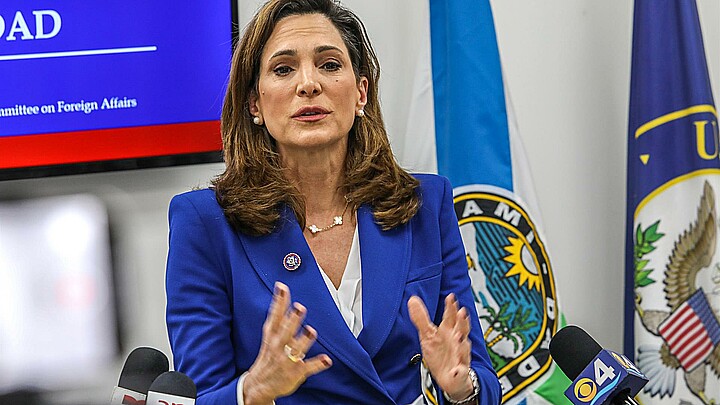Human Rights
Sen. Rubio rejects sentencing of former Bolivian interim president
She was arrested on charges that he helped start a coup against former President Evo Morales
June 14, 2022 12:11pm
Updated: June 14, 2022 12:55pm
U.S. Senator Marco Rubio (R-FL) and other bipartisan colleagues on Monday rejected the arbitrary sentencing of former Bolivian Interim President Jeanine Áñez by a court in La Paz.
Senators Bob Menendez (D-NJ), Jim Risch (R-ID), Dick Durbin (D-IL), Ben Cardin (D-MD), and Ted Cruz (R-TX) joined Rubio in a joint statement criticizing the politicization of Bolivia’s judiciary.
“In 2019, the United States Senate unanimously passed our bipartisan resolution supporting democratic principles and standards in Bolivia,” the senators said in the statement. “As a central message, it called ‘on the Government of Bolivia to respect, and where necessary restore, the independence of key electoral and governing bodies.’ The decision to arbitrarily sentence former President Jeanine Añez to ten years in jail on dubious charges recklessly diminishes Bolivia’s judicial system to a tool that seeks to settle political scores.”
“It is with the utmost concern that we reject this troubling decision, which undermines democratic norms and puts into question Bolivia's fragile democracy,” the statement continues.
Sen Rubio, @SenatorMenendez, @SenatorRisch, @SenatorDurbin, @SenatorCardin, & @SenTedCruz issued a joint statement on the continued politicization of #Bolivia’s judiciary following the arbitrary sentencing of former Interim President @JeanineAnez.
— Senator Rubio Press (@SenRubioPress) June 13, 2022
Read 🔽https://t.co/ubTINhmE15
Añez, a former conservative lawmaker and deputy senate leader, led Bolivia’s one-year interim president. However, she was arrested on charges that he helped start a coup against former President Evo Morales.
Prosecutors are accusing Añez of illegitimately seizing power after Morales was ousted after the 2019 elections. Morales allegedly won the elections. However, international observers claimed that the election results were fraudulent. Deadly protests ensued after the controversial vote count, causing Morales to flee the country.
Añez’s opposition claims that she threatened those in line of succession to make her interim president, all of whom had resigned with Morales or shortly after.
"I did not lift a finger to become president, but I did what I had to do to pacify a country that Morales left convulsed as he fled," Anez said from prison.
In March 2021, Risch, Menendez, Rubio, and Durbin issued a statement after the arrest of Añez.
“The November 2020 presidential election gave Bolivian political parties an opportunity to renew their commitment to democracy and tolerance. However, recent events appear to signal a return to the politics of the past. We, therefore, urge Bolivian authorities to uphold their country's national and international human rights laws and commitments,” the senators wrote.
On Friday, a court sentenced Añez to 10 years in prison over charges related to the so-called coup against Morales. Añez’s defense attorneys claimed they would appeal the sentence given by the country’s court and would even turn to the Inter-American Court of Human Rights if needed.










